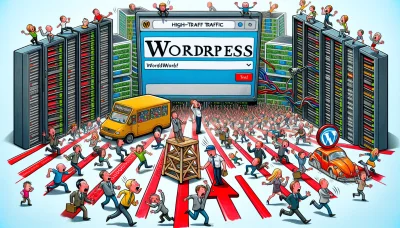Insurance website builder Quiz
Test Your Knowledge
Question of
Understanding Insurance Website Builders
An insurance website builder is a specialized tool or platform designed to help insurance agents, brokers, and companies create and manage their online presence effectively. It is tailored to meet the unique needs of the insurance industry, incorporating features such as quote forms, customer portals, and policy information sections. These builders provide templates and drag-and-drop interfaces to make website creation accessible to users without technical expertise, enabling insurance professionals to launch user-friendly, informative, and compliant websites with ease.
Why Choose a Specialized Insurance Website Builder?
Choosing a specialized insurance website builder offers numerous benefits tailored specifically to the needs of insurance agencies and agents. These specialized builders come equipped with industry-specific templates and tools that make it easy to create professional-looking websites without needing extensive web design knowledge. They often include features such as quote forms, integration with insurance databases, and the ability to easily update policy information, providing a seamless experience for both the agency and the clients. Additionally, security measures are usually a top priority, ensuring that sensitive client information is protected. Opting for a specialized builder can save time and resources while ensuring that the website remains compliant with industry regulations and standards.
Key Features of an Insurance Website Builder
- Customizable Templates for Different Insurance Types
- Mobile Responsive Design
- Integrated Quoting Tools for Instant Quotes
- Secure Online Payment Processing
- SEO Optimization Features
- Client Portal for Policy Management
- Live Chat Support for Customer Queries
- Content Management System for Easy Updates
- Analytics and Reporting Tools
- Compliance and Security Measures
Top Insurance Website Builders in 2022
| Website Builder | Key Features | Pricing |
|---|---|---|
| Wix | Drag-and-drop editor, 500+ templates, advanced SEO tools | Free plan available; Premium plans start at $14/month |
| Squarespace | Beautiful templates, built-in SEO, mobile optimization | Plans start at $12/month |
| Weebly | Intuitive drag-and-drop interface, SEO tools, customizable templates | Free plan available; Professional plan starts at $12/month |
| WordPress | Flexible, thousands of plugins, themes, strong community support | Free; Premium features and hosting cost extra |
| GoDaddy Website Builder | Easy to use, mobile-friendly designs, SEO tools | Plans start at $9.99/month |
How to Choose the Right Insurance Website Builder
Choosing the right insurance website builder is crucial for establishing a strong online presence. Start by evaluating your specific needs, such as custom forms for quotes, client portals, and payment processing capabilities. Look for builders that offer templates specifically designed for insurance websites, ensuring they are customizable to match your brand. Consider the ease of use, as you'll want to update your site without needing technical expertise. Security features are paramount, so ensure the builder complies with industry standards to protect client information. Lastly, review the support and training resources available to help you make the most of the platform. By carefully assessing these factors, you can select a website builder that effectively supports your insurance business online.
Building Your Insurance Website: A Step-by-Step Guide
- Choose a Website Builder: Start by selecting a website builder that is user-friendly and offers templates that are specific to the insurance industry.
- Select a Template: Choose a template that best fits your insurance business. Look for something professional, easy to navigate, and mobile-responsive.
- Customize Your Template: Customize your chosen template with your brand colors, logo, and images to make your website stand out.
- Add Essential Pages: Create the essential pages for your website, such as Home, About Us, Services, Contact Us, and FAQs. Make sure the information is clear and concise.
- Include Detailed Service Information: Provide detailed descriptions of the insurance services you offer. Make it easy for potential clients to understand what makes your offerings unique.
- Implement SEO Best Practices: Optimize your website's content with relevant keywords to ensure it ranks well on search engines. This will help potential clients find your site.
- Integrate Online Quotation Tools: If possible, integrate tools that allow visitors to get quotes directly from your website. This feature can significantly enhance user experience and lead generation.
- Add Testimonials and Reviews: Build trust with potential clients by showcasing testimonials and reviews from your existing clients.
- Ensure Your Site is Mobile-Friendly: With a significant portion of internet traffic coming from mobile devices, it's crucial to ensure your website is responsive and mobile-friendly.
- Launch Your Website: After thoroughly testing your website for functionality and user experience, it’s time to launch. Announce your new site on social media and through email marketing to your existing clients.
Maintaining and Updating Your Insurance Website
Keeping your insurance website up-to-date is crucial for providing your clients with the most current information and services. Regular maintenance should include checking and updating policy details, premium rates, and contact information to ensure accuracy. Additionally, consider adding new features or resources that can help your clients understand their insurance options better. Implementing a consistent schedule for reviewing and refreshing your website's content can significantly enhance user experience and help maintain your company's professional image.












